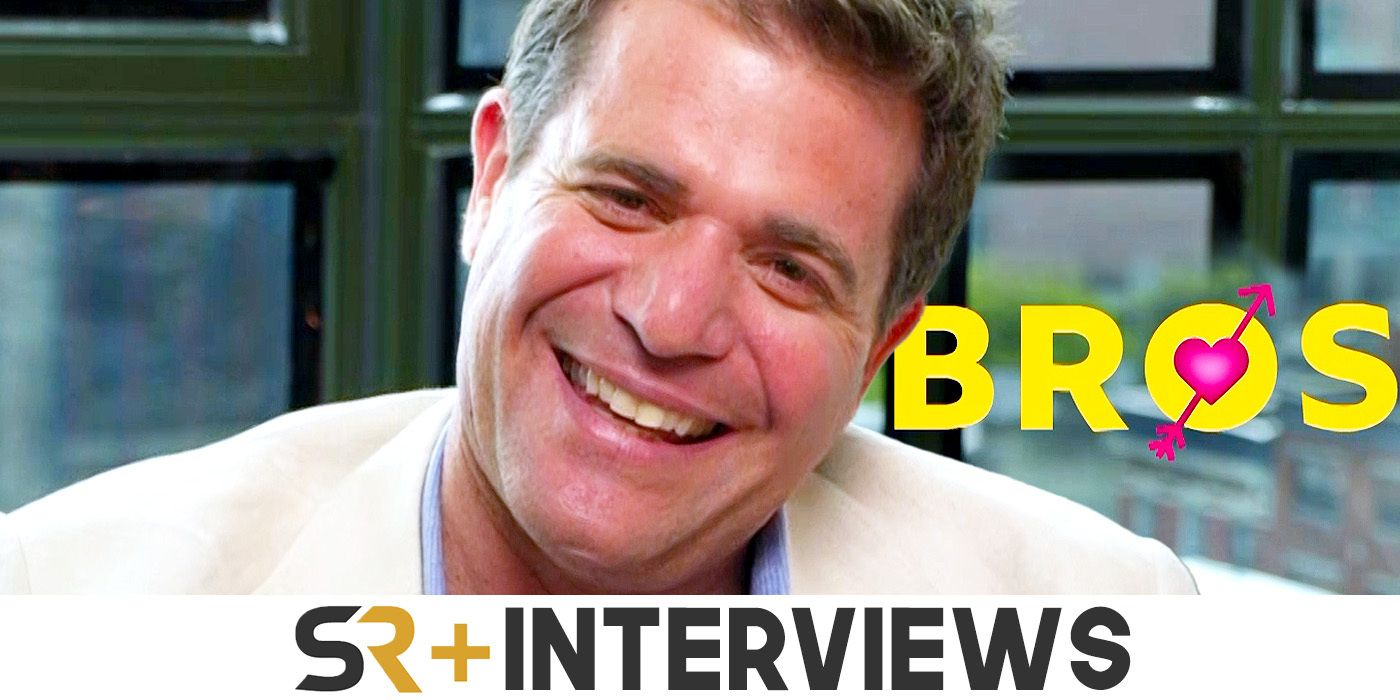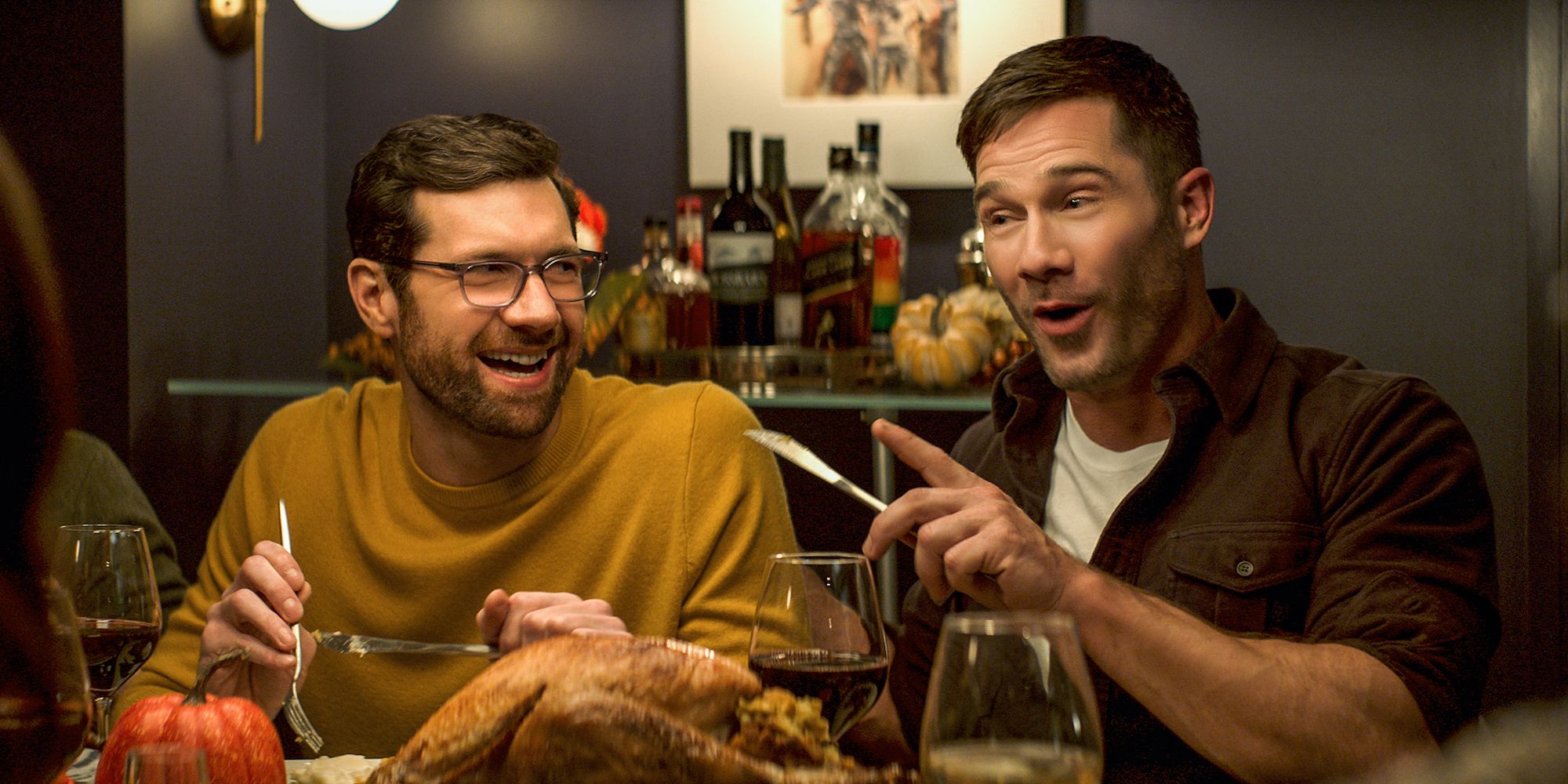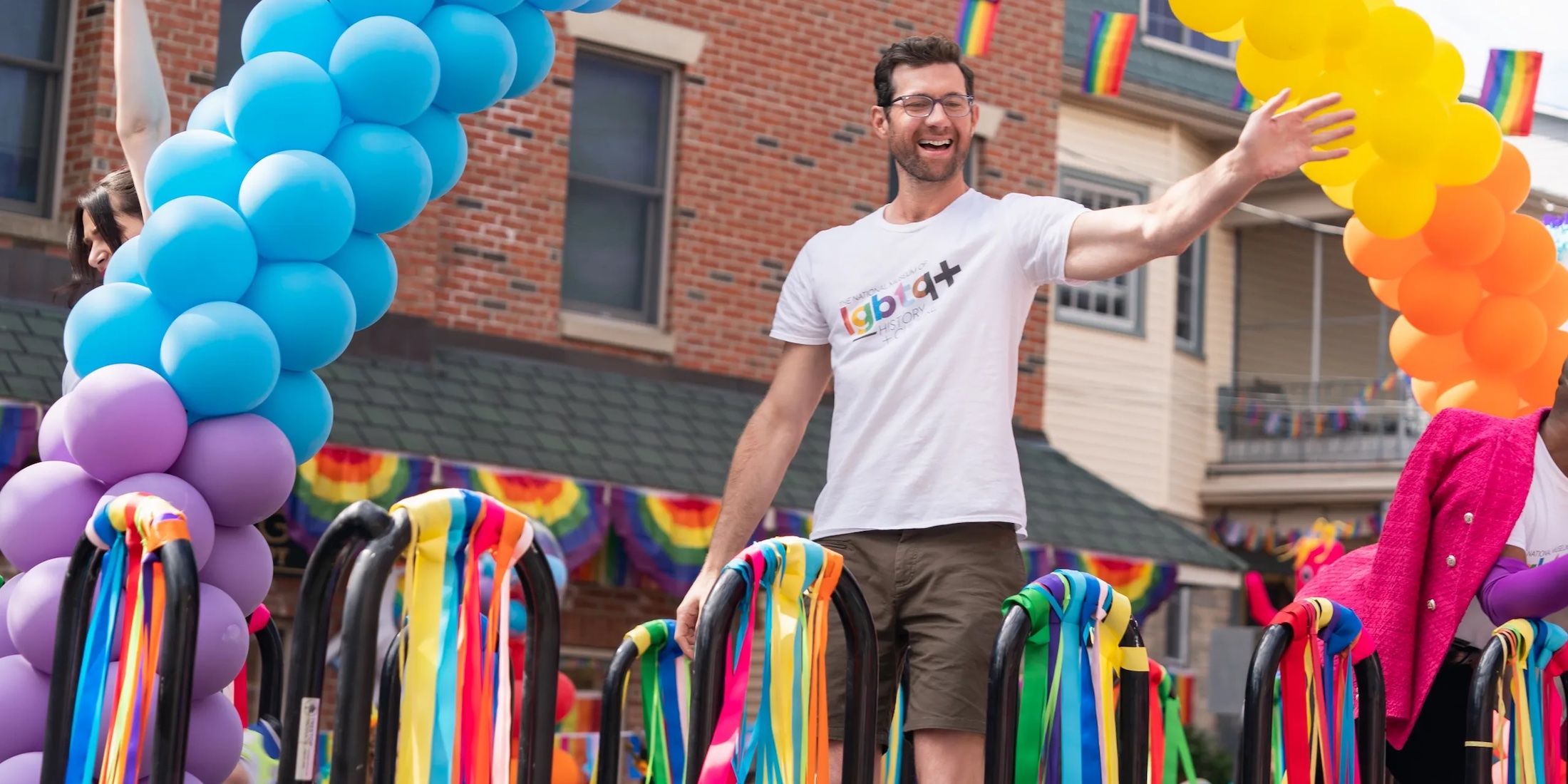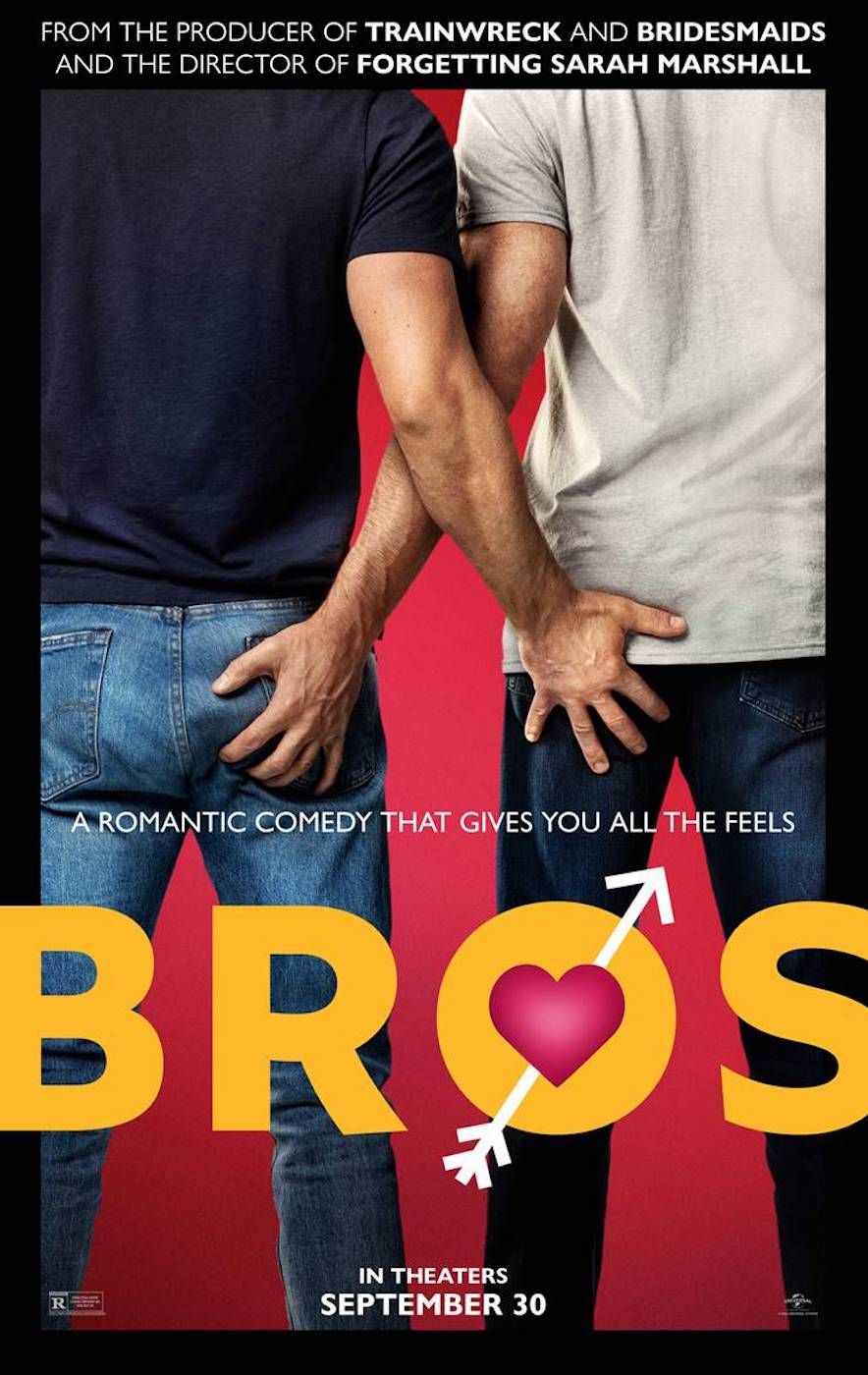Bros is a groundbreaking film that amasses an all-queer cast to make a romantic comedy about two gay men. The Universal Pictures production marks the first time a major film studio has attempted such a feat, and the reviews prove that the result is delightful. Comedian Billy Eichner stars as Bobby Leiber, an ambitious high-strung podcaster who is making history by opening the first LGBTQ+ history museum. His carefully curated and highly unromantic world is turned upside down when he meets Aaron Shephard (Luke Macfarlane, Killjoys), an estate lawyer who appears to be all muscles and zero commitment.
Naturally, Bros follows what happens when these two men fall in love despite feeling completely wrong for each other at first sight. But the steps of their courtship cannot follow the cookie cutter of a traditional rom-com for its own sake, so Eichner co-wrote the screenplay with director Nicholas Stoller (who previously worked with him on Friends From College) in order to craft a film that married narrative conventions to realistic LGBTQ+ experiences.
Screen Rant spoke to Stoller about how he and Billy Eichner collaborated on the screenplay for Bros, the excitement and nerves that came with directing Debra Messing, and how certain rom-com tropes shifted when telling a story authentic to the LGBTQ+ community.
Nicholas Stoller Talks Bros
Screen Rant: I loved reading about your collaborative process with Billy. He said that he didn't know how to write a movie, and you didn't necessarily know how to be authentic with what was being written. What was that process like for you?
Nicholas Stoller: Yeah, it was kind of an amazing experience. It was a five-year chat, is the way I put it. We talked about this movie endlessly. We sat in my office and talked about it; we talked about it on Zoom in the pandemic; we talked and talked and talked. And yeah, it really was that way.
I've written a lot of movies and directed movies, and he's never done that before. I've done it in the studio system, and so I said to him at the beginning, "I'm gonna follow your lead. The only thing that I care about is that the movie be honest, and it be really funny." And it had have a happy ending, because it's a studio movie and I also like happy endings. We don't get enough of them.
Then he talked about his life. He talked about gay dating; he talked about his experiences and friends' experiences. I talked about my life; I talked about my own experiences. There's certainly stuff in this movie that I feel emotionally connected to as well. But it was a lot of listening, which is what I do as a director no matter what the subject is—but it was particularly important with this film.
I'm glad the happy ending was mandatory. And I was also very happy to see some of these amazing cameos, like Debra Messing and Kristin Chenoweth. How did you get them on board?
Nicholas Stoller: They were in the script, and we reached out to them early on. This was pre-pandemic; we were going to shoot right before the pandemic hit. We had a delay, but [Debra Messing] instantly was like, "Yes, I want to do it." Kristin Chenoweth, the same thing.
I was very nervous directing both of them; they're such legends. The two days we shot with Debra Messing, I was like, "Oh my God, this is like a comedy legend in here." The actors that have been on like sitcoms know their sh-t. Like, they're so good. She's a comedy assassin, so she was finding jokes in that scene that weren't even there. Just the way she would do the lines and stuff was so funny. She also told me—I don't know if this is true, but—that she'd never cursed on camera before. I just have to say that R-rated Debra Messing is the greatest thing I've ever seen.
I love how the story calls back to classic rom-coms while also pushing the boundaries of it, even with the score. How do you walk that line of giving the LGBTQ+ community a traditional rom-com but also not being beholden to heteronormative tropes?
Nicholas Stoller: Yeah, that was another thing I said early on to Billy—and he said it to me, too. I was like, "This can't be a guy and a girl, but it's two guys. That's not going to be the right and honest story." It was important, and I again followed his lead and made sure that it made sense to him.
But I think it was following the story, and just being very frank about like, "And then this would happen, and then that would happen. And then if this happened, then that would happen..." And not trying to be like, "Well, it's the end of the second act, so they have to get into a fight." We went where the characters led us, and it took many drafts to find that.
I always say that a film needs to be surprising yet inevitable. That's true of story; that's not something I've made up. Someone much smarter than me said that, but that is true. That's true of any great movie or any great story, and I hope we achieved that with this. It's a romantic comedy, so you know-slash-hope they'll end up together. But it's how they end up together that is the fun.
About Bros
Universal Pictures proudly presents the first romantic comedy from a major film studio about two gay men maybe, possibly, probably, stumbling towards love. Maybe. They're both very busy.
From the ferocious comic mind of Billy Eichner and the hitmaking brilliance of filmmakers Nicholas Stoller and Judd Apatow, comes Bros, a smart, swoony, and heartfelt comedy about how hard it is to find another tolerable human being to go through life with.
Check out our other Bros interviews:
Bros is currently playing in theaters.




